A Field Guide to Israeli Organized Crime
Exploring an underworld of gambling, drug trafficking, arms dealing, extortion, assassination, and corruption
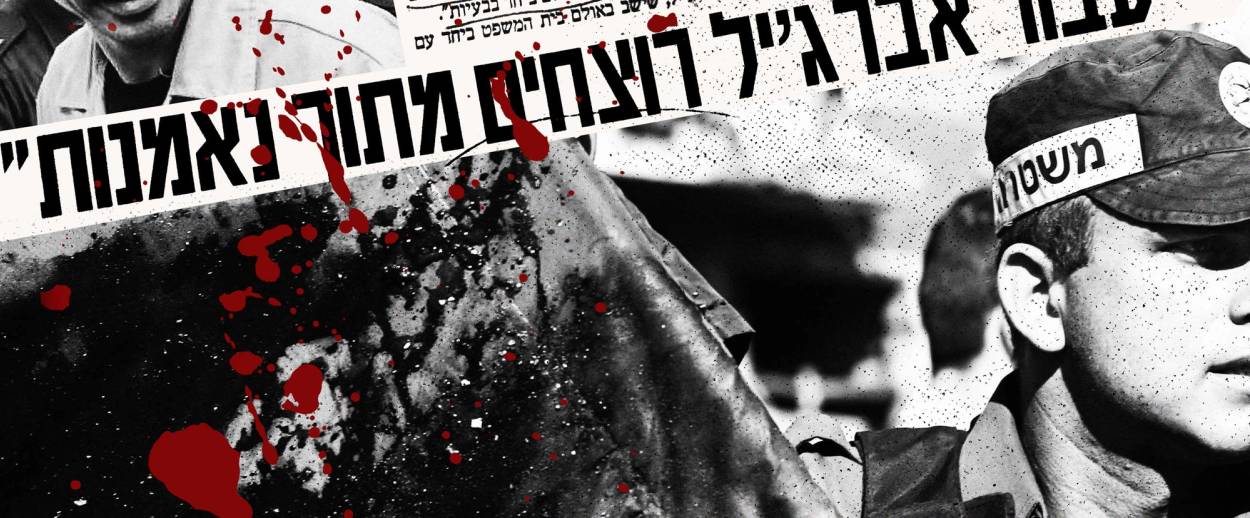



In a cage made of fortified glass, under heavy security, smiling in his orange jumpsuit, is Yitzhak Abergil. The reading glasses he wears from time to time, and the hearing aid tucked into his ear might give the mistaken impression of gentleness or physical incapacity: For decades, he was considered Israel’s most dangerous criminal, the undisputed king of the underworld, the man who could make you tremble with fear with just one look. But now the fear is dissipating as, one by one, the people closest to Abergil take the stand and tell the stories of how he headed a murderous international crime syndicate that left behind a trail of mutilated bodies, some belonging to fellow criminals who dared to question the king, some of them innocent bystanders who happened to be in the wrong place at the wrong time.
The trial has been dragging on for three years, and Abergil just sits there, inside his aquarium, watching the collapse of his empire through bulletproof glass. After so many years of surveillance and wiretaps, the police and the prosecutors believe that, this time, they’ve got him. They’re familiar with the famous quote from The Wire: “When you come at the king, you best not miss.”
Working under the codename Case Number 512, the police and the prosecution have recruited seven key witnesses whose job is to bring down three of the country’s mightiest crime organizations. Of those, Abergil’s is considered the largest, the wealthiest, and the cruelest. Abergil’s indictment could keep several Hollywood screenwriters busy; it provides a frightening peek into the expansion of Israel’s organized crime to the rest of the world, including forays into the global trade in cocaine and ecstasy, extortion, gambling, money laundering, a string of unsolved murders, mysterious explosions, and innocent people paying with their lives along the way.
In recent testimony that lasted two days and captivated the Israeli public, Abergil shared with the world the story of how he grew from a scrawny kid in a hard-hit neighborhood in Israel to one of international crime’s most fearsome figures. “It was 1974,” he recalled in one part of his testimony, “I was 5 years old, and we’d go to bomb shelters that were better furnished and cozier than our homes. My job was to hide the guns. … I’d draw a triangle, I’d draw a circle, all sorts of markings so I could tell which gun was whose. I didn’t know how to read or write. My mother worked three jobs, cleaning homes in the morning, caring for other people’s children in the afternoon, and washing dishes in the evening. She’d rarely be home before 1 a.m., so we had to fend for ourselves, because my father was an alcoholic who would wake up and start doing shots. So us kids, we would help each other, we would steal but we would give something to those who didn’t steal as well.”
Shmaya Angel, one of Israel’s original crime bosses, took Abergil under his wing during an early stint in prison, teaching him to read and giving him his first taste of books. Two works in particular enchanted the young hoodlum: Ayn Rand’s Atlas Shrugged and The Fountainhead. The latter, Abergil said in his testimony, “slapped me in the face, as if it shattered the way of life in which I believed.” Suddenly, he added, he realized that his decision to become a criminal was just that—a decision, informed by childhood circumstance.
The police argue that Abergil is far from the reborn philosopher-king he portrays himself to be. At the center of Case Number 512 is the underworld war that was waged in the 2000s between Abergil and his bitterest foe during those years, Ze’ev “The Wolf” Rosenstein. Large sums of money were spent, blood was spilled, and Rosenstein and Abergil were both designated as drug lords by the DEA, the Pablo Escobars of Israel. Each man in his turn was then extradited to the United States, where they were convicted of international drug trafficking. At their request, they’re doing their time in Israeli prisons.
Rosenstein, 64, is believed to be retired these days, given his lengthy prison sentence and the disintegration of his criminal enterprise. He will be eligible for parole soon, and hopes to gain an early release, while Abergil, who is only 49, is entangled in the mega-trial surrounding Case Number 512. He might, he now understands, spend the rest of his life behind bars.
Israel, which loves calling itself the Start-up Nation because of its impressive accomplishments in high tech, is also an exporter of highly organized and deadly crime. In 2016, the Israeli news site Mako estimated that organized crime in Israel generated as much as NIS 50 billion, or US$14 billion, each year. Israel’s crime families now have branches in Europe, America, Africa, Australia, and Asia.
As Israeli crime families have gone global, they have exported the gruesome methods they perfected in Israel, which borrow liberally from the methods of terrorist organizations, including detonating explosive devices in the heart of major cities. Last November’s crime wars, for example, began when a car exploded while it was being driven in the South of Tel Aviv, killing two men. Less than 48 hours later, another vehicle, this one speeding down the highway, exploded as well, killing another man. The police believe both cases to be the result of the Israeli mob’s score settling.
A few days later, assailants armed with semi-automatics opened fire on two prisons, an act that is believed to have been designed to send a message to the authorities that members of a certain crime organization were displeased with the conditions of their imprisonment. Prime Minister Benjamin Netanyahu commented on the incident, saying, “this is not the Wild West.” He would’ve done better phrasing his statement as a question.
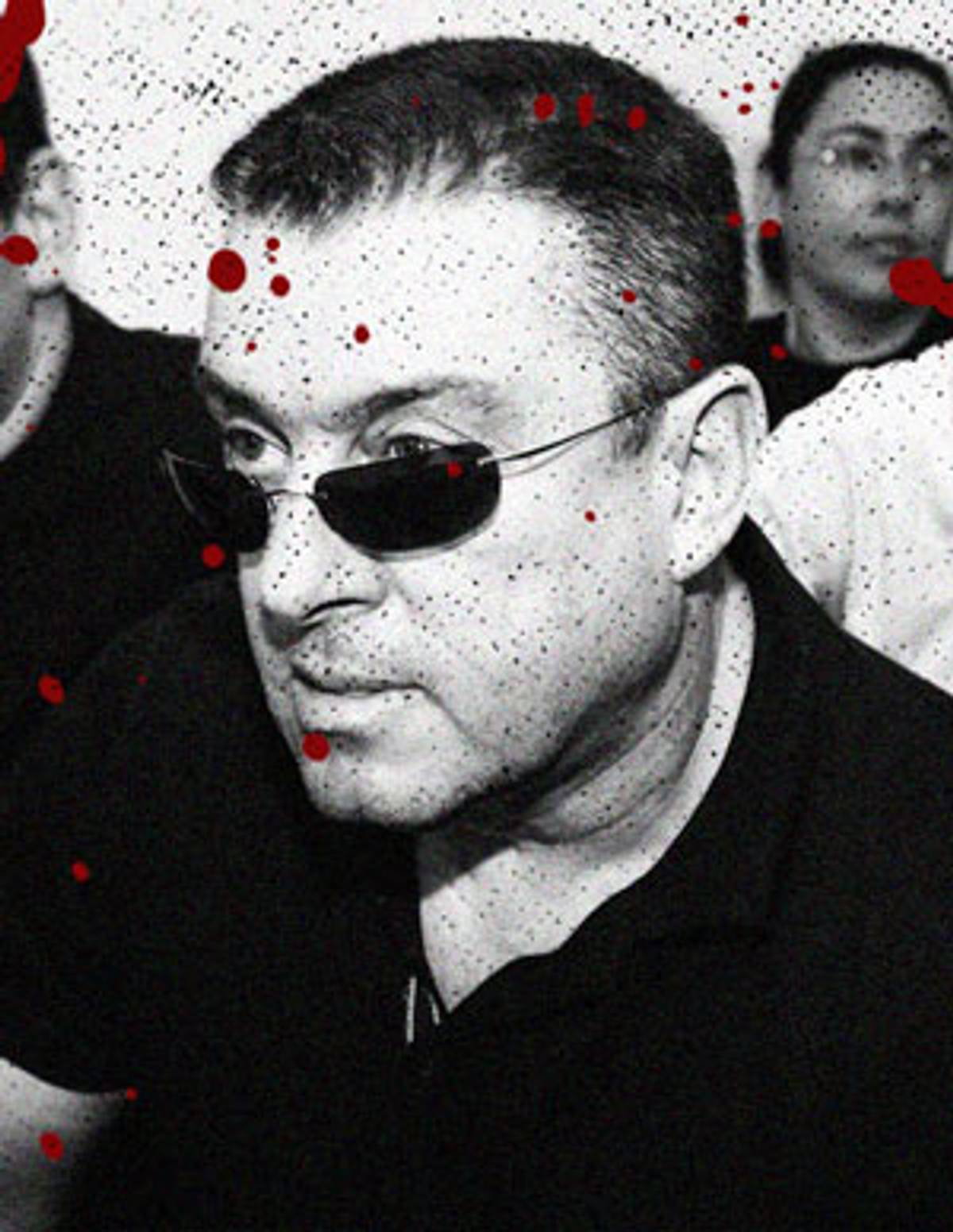
Witnesses who agree to collaborate with the authorities are murdered under mysterious circumstances time and again. One of the most famous such cases, which surfaced as part of the investigation into Case Number 512, was the story of Yoni Alzam, a crime organization foot soldier who was supposed to provide incriminating testimony about a murder allegedly committed by one of Abergil’s men. Alzam was held in solitary confinement under heavy guard in a maximum security prison. In 2005, he was found dead in his cell one day before he was supposed to testify, after he ingested some cyanide that was somehow smuggled to his cell. Alzam’s death sent a chilling message to other potential witnesses: There’s no place where you are safe from the bad guys.
It’s no wonder that judges adjudicating cases involving crime lords walk around with security details. Yoram Hacham, a criminal defense lawyer who worked with several crime families, was murdered in 2008 in Tel Aviv when someone placed an explosive device in his Jeep. In another case, a car belonging to a high-profile prosecutor exploded. Miraculously, no one was hurt.
The era of modern crime in Israel began in December of 2003, at midday, in Tel Aviv’s Yehuda Halevi Street, when a powerful bomb, intended to take out Ze’ev Rosenstein, went off in a currency exchange shop. Rosenstein survived, but three passersby didn’t. Investigating Case Number 512, the prosecution learned from its witnesses that the botched hit was ordered by Abergil, who gave the order from his hideout at the time, in Belgium.
Wikileaks has exposed a diplomatic cable sent in May of 2009 by the U.S. Embassy in Tel Aviv to the Department of State and the FBI. In the cable, then-Ambassador James Cunningham expressed his concern about the rise of organized crime in Israel. In the cable, which Cunningham titled “Israel: The Promised Land of Organized Crime?” he wrote that “five or six families have traditionally controlled organized crime in Israel. The Abergil, Aboutboul, Alperon, and Rosenstein families are among the best-known, but recent arrests and assassinations have created a vacuum at the top, and I believe that newcomers like Mulner, Shirazi, Cohen, and Domrani are closing the gap.”
Almost a decade after the secret cable by the concerned ambassador, some of the names on the list are still considered to be among Israel’s most dangerous criminals. Others, like the Aboutboul and Alperon organizations, have disappeared, their bosses murdered or arrested. If the American ambassador chose to write an updated list nowadays, the following are the names he’d probably mention.
***
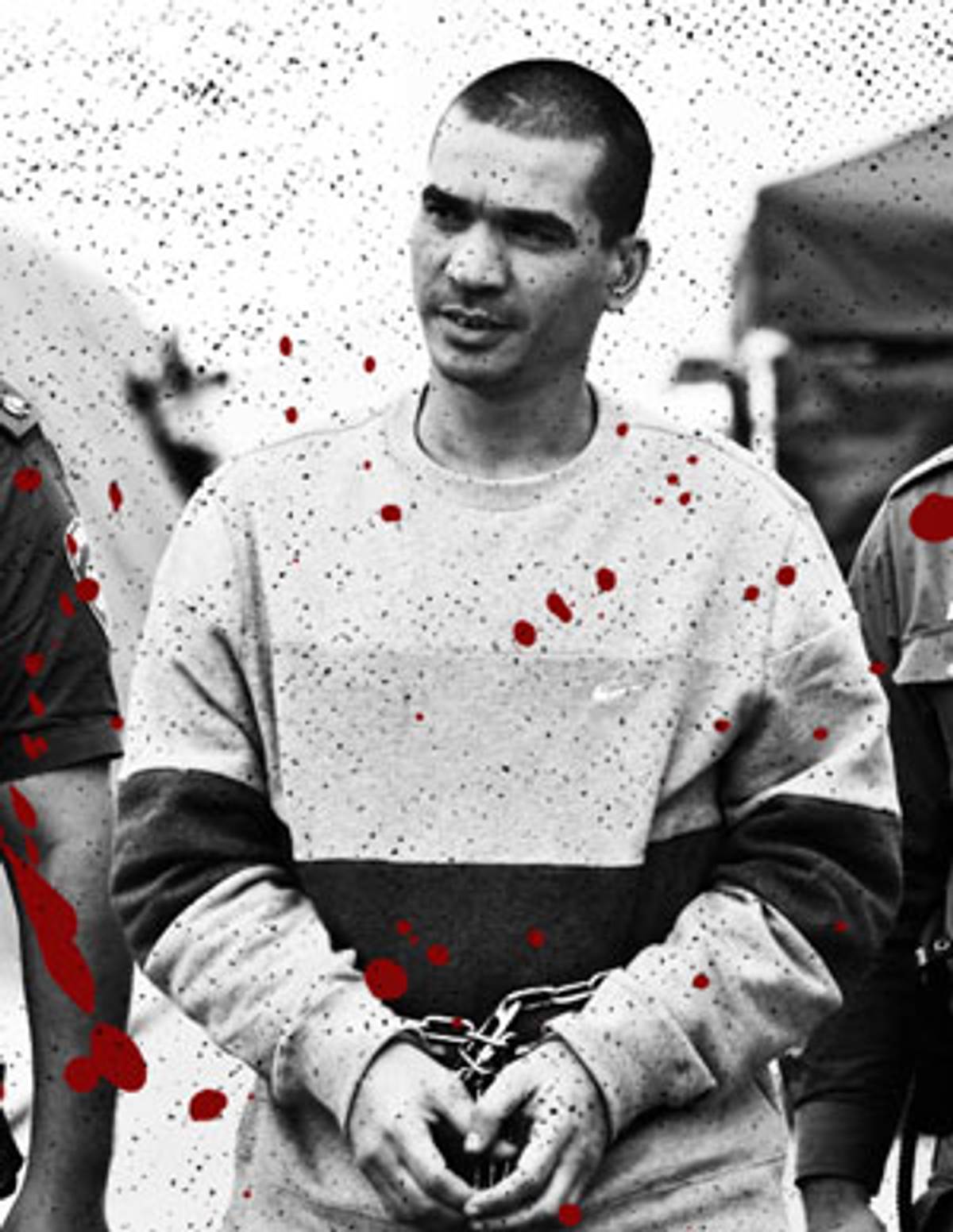
The Abergil Organization
The boss: Yitzhak Abergil
Home turf: Lod
The Abergil brothers grew up in a slum in Lod. For years, they were considered to be the heads of Israel’s most notorious crime family. Of the family’s 10 brothers and sisters, it was the youngest, Yitzhak, who led the clan. Even as a young boy, he was deeply respected and appointed a borer, an unofficial judge resolving conflicts between warring crime families. His Wikipedia page reports that “when he was 12, he showed up at school armed with a gun, shot various objects in the school yard, and aimed his loaded weapon at fellow students. Following this incident, he was expelled.” At 17, he was imprisoned for murdering a drug dealer.
Side by side with his uncompromising cruelty, Abergil, charismatic and eloquent, became a prison-yard leader who spent his days studying philosophy, quoting Nietzsche, and charming both his wardens and journalists, both of whom were enamored with his noble savage persona. After he was released, Abergil traveled the world, building a global ecstasy ring operating out of Belgium and Holland and distributing millions of pills. As Abergil traveled between Morocco, Spain, Belgium, and the United States, his organization in Israel expanded its activities to gambling, which ignited the war with Rosenstein, who dominated the field at the time.
A particularly gruesome case, which made headlines in Israel and was mentioned by Ambassador Cunningham in his cable, was an attempted assassination on the beach in Bat Yam in 2008, attributed to Abergil’s men, during which Marguerita Lautin, a 31-year-old woman who was spending the day with her husband and two children, was killed by a stray bullet. Another tragedy occurred in 2005, after a hit squad sprayed a car, hoping to murder Abergil but killing instead a 4-year-old girl and her aunt, moments after the two left a bar mitzvah celebration.
After Abergil was extradited to the United States and returned to Israel to serve his sentence, he was faced with Case Number 512, which threatens to sentence him and his lieutenants to many more years in prison. His foot soldiers still on the outside are doing their best to keep the organization alive, and some are establishing independent operations of their own.
Initially, Abergil has denied all of the allegations against him, but after he saw the gallery of witnesses taking the stand and telling hair-raising tales about his deeds, something inside of him must have cracked. Last June, he announced that he was willing to take a plea deal and serve 30 years. But now the plea deal is off the table and the trial goes on, while Abergil has decided to fight in court for his freedom.
The Mulner Organization
The boss: Amir Mulner
Home turf: Ramat Gan
Amir Mulner, 46, is considered one of the most ruthless and sophisticated criminals in Israel. It’s not for nothing that he inherited Ze’ev Rosenstein’s public enemy No. 1 designation in the Tel Aviv detective squad’s list. Famous for his blood-curdling stare, Mulner is calm and intelligent, and his organization is believed to control all of central Israel.
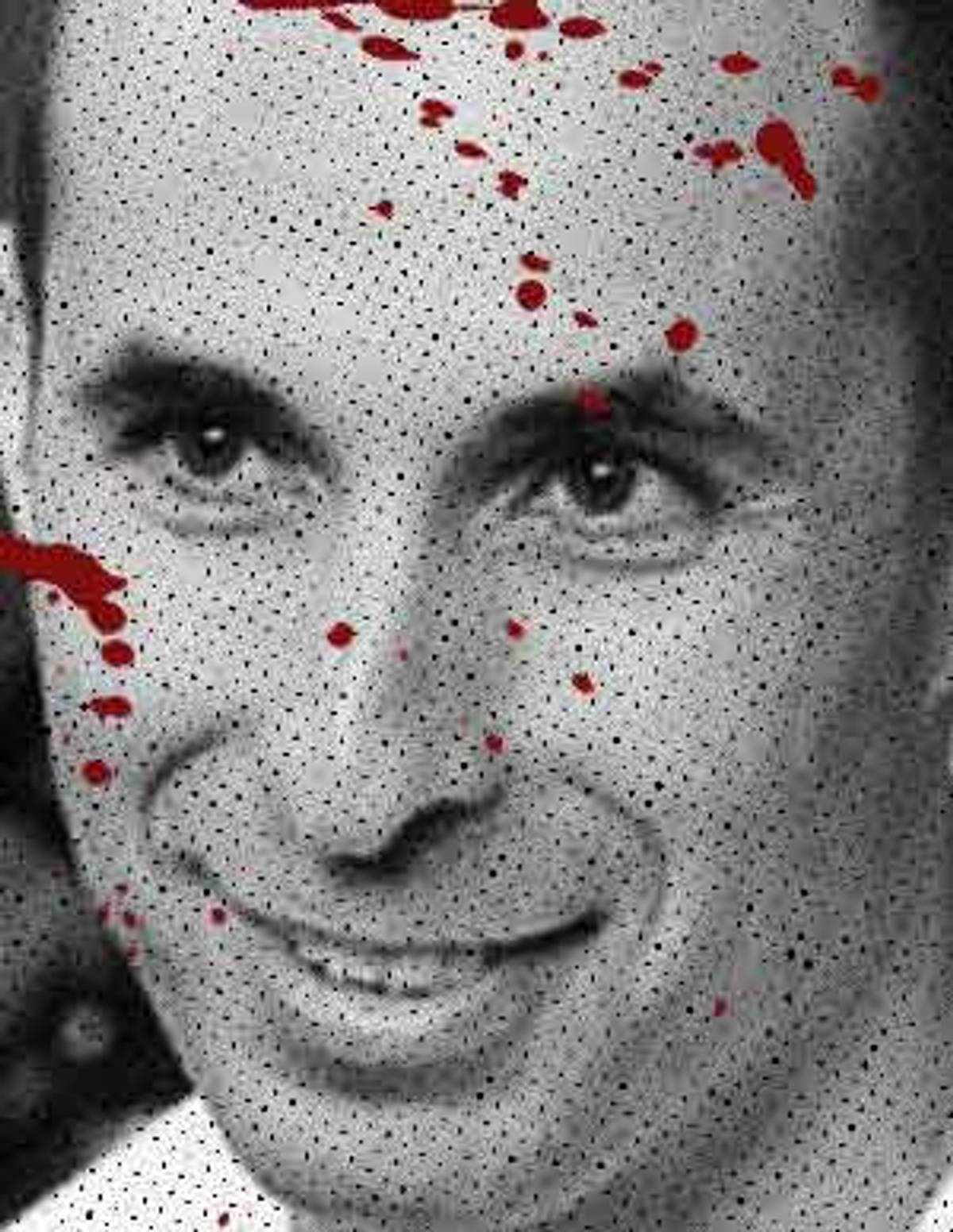
The son of a police officer from Ramat Gan, Mulner served as an explosives expert in the Golani Brigade. He grew up as a member of the Ramat Amidar gang, led by the Harari brothers, and was the protégé of Don Ya’akov Alperon, the head of one of Israel’s largest crime families. The war he waged in the 1990s against the Pardes Katz gang was one of the bloodiest and stormiest conflicts Israel has known, leaving behind a long trail of mutilated bodies and exploded cars. In its intelligence reports, the police identified Mulner as the man behind a series of bombings, for which he was never convicted.
In the early 2000s, Nissim Yamin, a member of the Ramat Amidar gang, turned state witness, and Mulner, afraid of being incriminated, fled first to South Africa and then to Cancun, Mexico. Yamin survived an assassination attempt which left him handicapped, but he was still in a position to testify against Mulner. One night in June of 2004, two assassins climbed a ladder, and shot Yamin to death as he was sitting in the living room and watching TV with his children. A short while later, Mulner returned to Israel. To this day, no one has been convicted of Yamin’s murder. When a car belonging to a senior lawyer working Mulner’s cases exploded in 2013 in the parking lot of the state prosecution in Tel Aviv, the police suspected that Mulner was sending them a message, but no proof ever materialized.
Mulner made news lately when he was accused of refusing to open the door to police officers sent to search his home. He gave up his right to an attorney, and represented himself in one of the most surreal trials Israel has ever seen. The man the police calls the boss of a major crime family stepped into the courtroom, and like a seasoned lawyer interrogated the police officers taking the stand, taking their arguments apart one by one. To the great embarrassment of the police, he won the case.
In another incident, occurring two years ago, Mulner was arrested and, not allowed a bathroom break during his interrogation, he unzipped his fly and urinated on the wall as the detectives, stunned, looked on. The police were furious, but Mulner told the judge that “they didn’t leave me any choice.” The court ordered his immediate release.
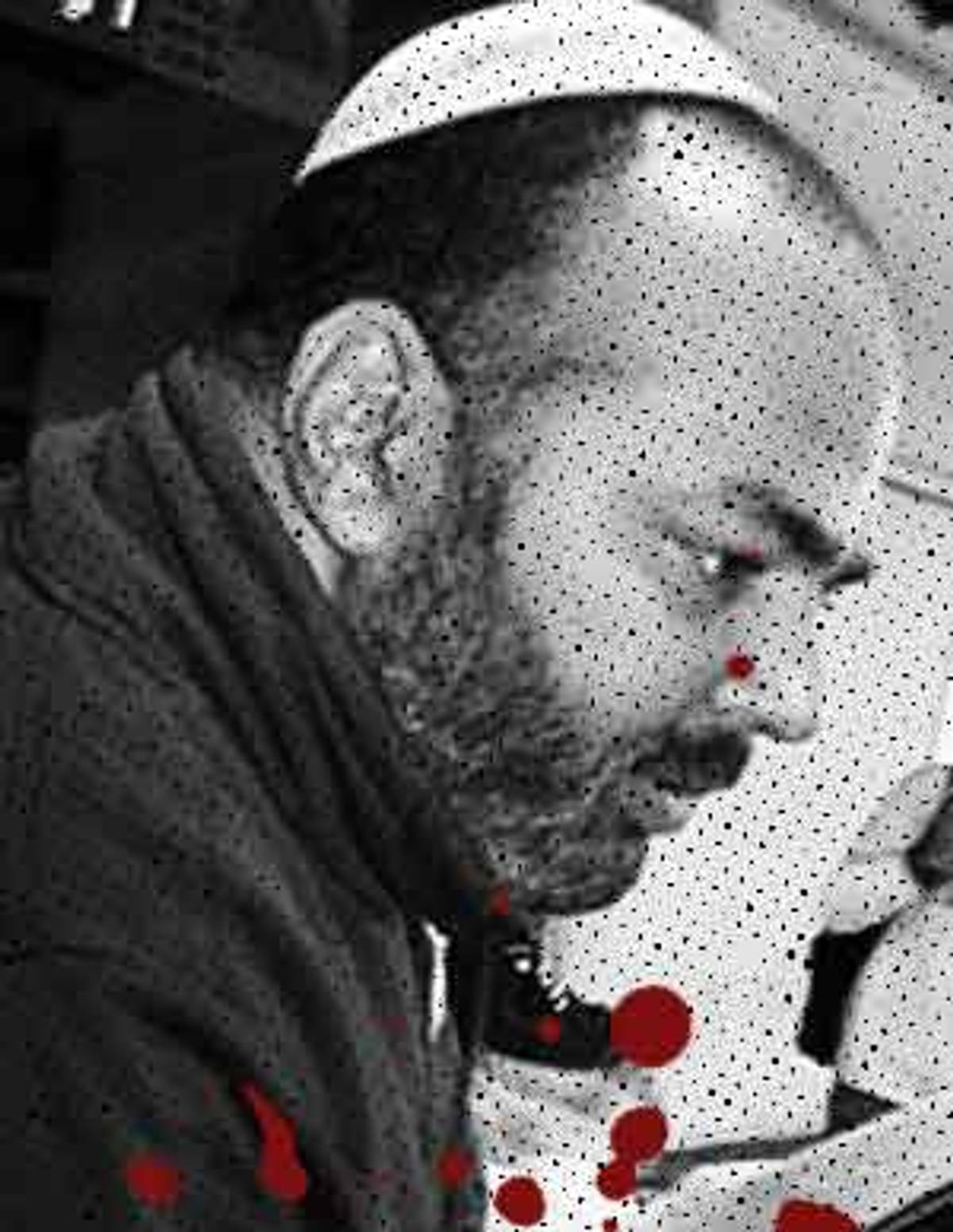
The Domrani Organization
The boss: Shalom Domrani
Home turf: Ashkelon
Shalom Domrani is 44. His nicknames are “the Black” or “the Ethiopian,” and he’s considered the big boss of southern Israeli crime. Growing up in a rough neighborhood in Ashkelon, he was incarcerated early in life. That didn’t stop him from building his own crime organization and treating his rivals with severe violence, eliminating them one by one.
In one of the cases that shocked Israel in the early 2000s, assassins, operating in broad daylight, shot up a car they believed carried Domrani and instead killed 16-year-old Shaked Shalhov.
Domrani is considered a merciless borer, and is active in extortion, loans, protection, gambling, and illegal quarrying in the beaches down South, an undertaking that has reportedly made him millions of dollars. He built himself a fortified compound in a moshav in the South and, at some point, the police floated a permanent surveillance balloon above his home. In recent years, he spent much time in Morocco, far from the watching eyes of the Israeli police and its balloons. His beloved son Nissim “Nina” Domrani was recently sentenced to two years in prison for extortion.
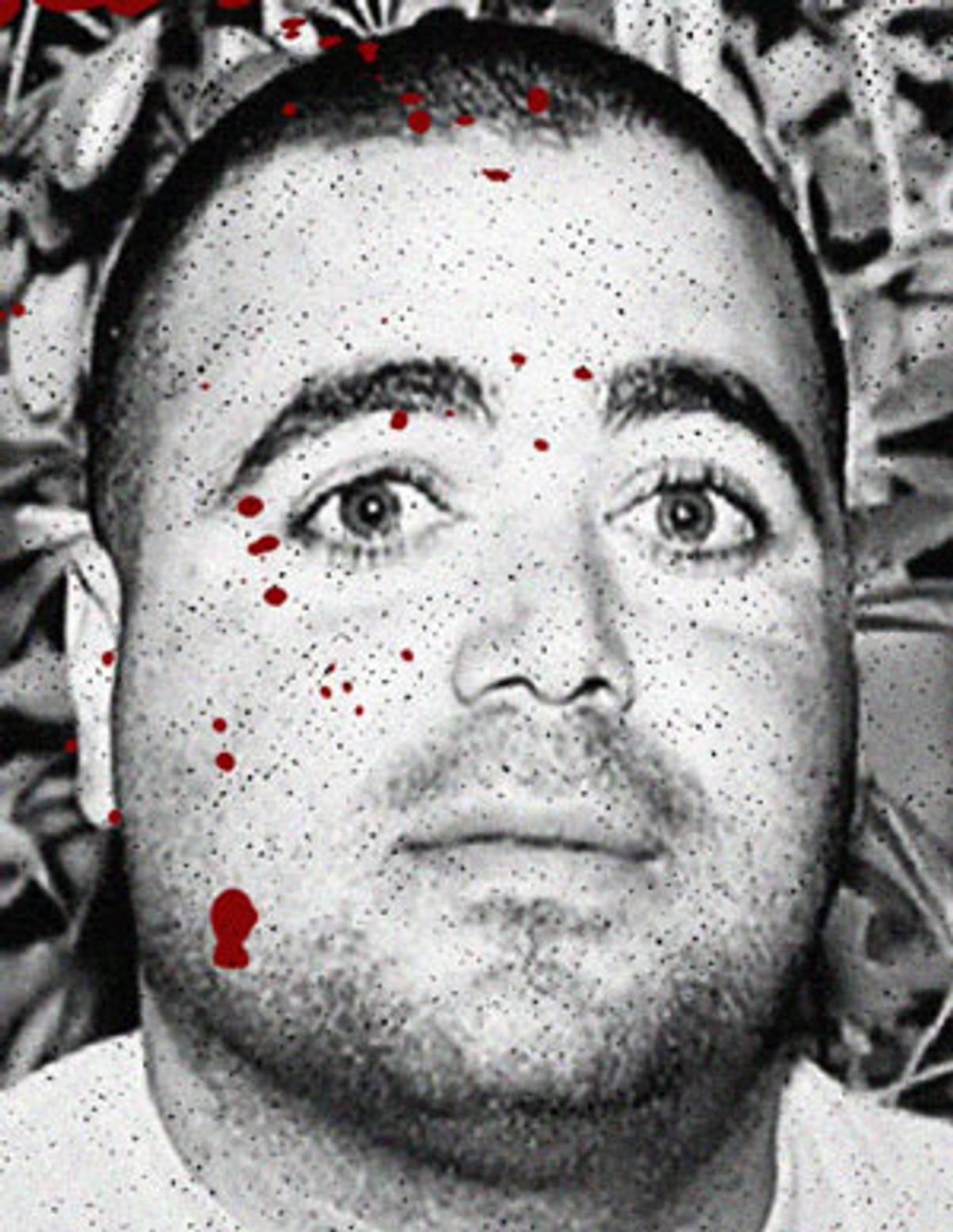
The Zaguri Organization
The boss: Nivi Zaguri
Home turf: Be’er Sheva
Yaniv “Nivi” Zaguri and his brother Haggai head a large crime organization in the south, focusing on Be’er Sheva and the Negev area. Zaguri is known as a ruthless criminal, and is close with Domrani. In recent years, he spent prolonged periods of time in Thailand and China. He has previously spent time in prison for a spate of violent acts, including throwing a grenade at the home of a journalist, placing an explosive device near the home of an officer in the Department of Corrections, and setting a lawyer’s office on fire.
Currently, Zaguri is on trial for the murder of three people. One of them is Tal Kurkus, a senior officer in his organization who crossed the line and turned state witness. Zaguri never forgave his former right-hand man for this betrayal, and during their feud both men produced viral videos with each other’s pictures with a gunshot audible in the background, promising that death was imminent.
In March of 2016, Kurkus’ ex-wife, Dvorah Hirsh, was shot to death at her doorstep in Be’er Sheva as Kurkus’ three children looked on. Kurkus himself was assassinated in June of 2017 by means of an explosive device planted in his car. The assassination occurred in a quiet residential neighborhood in Ashkelon, to which Kurkus was lured in a sophisticated trap preying on his fondness for gambling. Zaguri is now on trial for both murders. A third person Zaguri is accused of murdering is a state witness who had delivered incriminating testimony against his former boss.
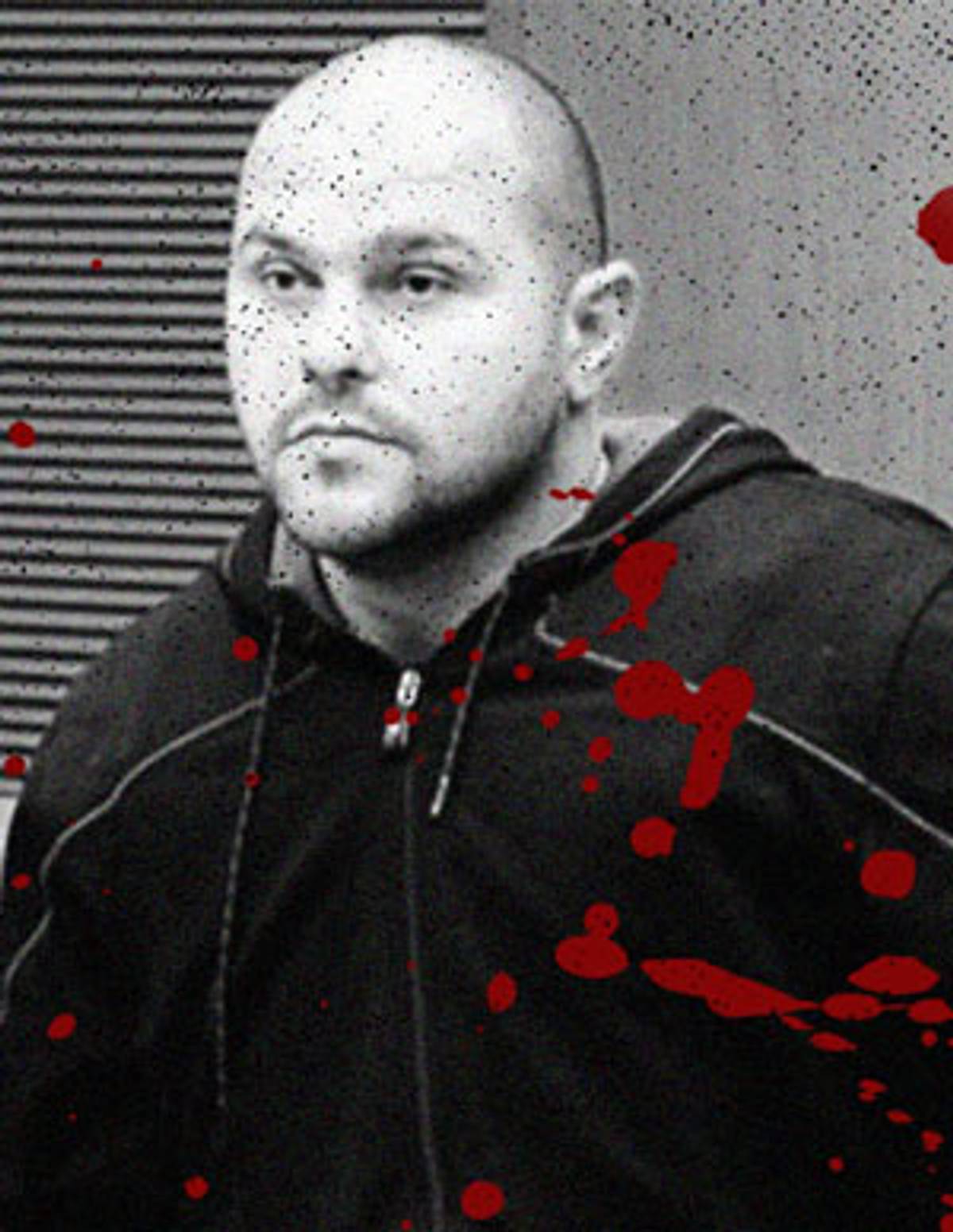
The Mor Organization
The boss: Michael Mor
Home turf: Naharia
Michael Mor, 40, grew up in Naharia and is considered to be the head of one of the largest crime families in northern Israel. He became publicly known in 2006 as part of a scandal that made headlines and became known as “the affair of the vengeful cops.” After grenades were thrown at the homes of several police officers and a rocket fired on a local police station, some officers, suspecting that Mor’s men were behind the attacks, decided to take the law into their own hands, and set explosive devices in Mor’s car and home. The attempt backfired. The officers were put on trial, and Mor was celebrated as a criminal unafraid to cross red lines and intimidate the police.
In recent years, Mor has served short prison sentences and spent long periods of time in South Africa, Thailand, and Romania. His brother Badri, running the organization in Michael’s absence, was murdered in 2014, forcing Michael to return to Israel and reignite bloody wars all over the North.
Last year, he was arrested with 33 of his men after an undercover agent incriminated them on charges of dealing drugs and arms trafficking. He is also accused of allegedly helping Zaguri assassinate Tal Kurkus.
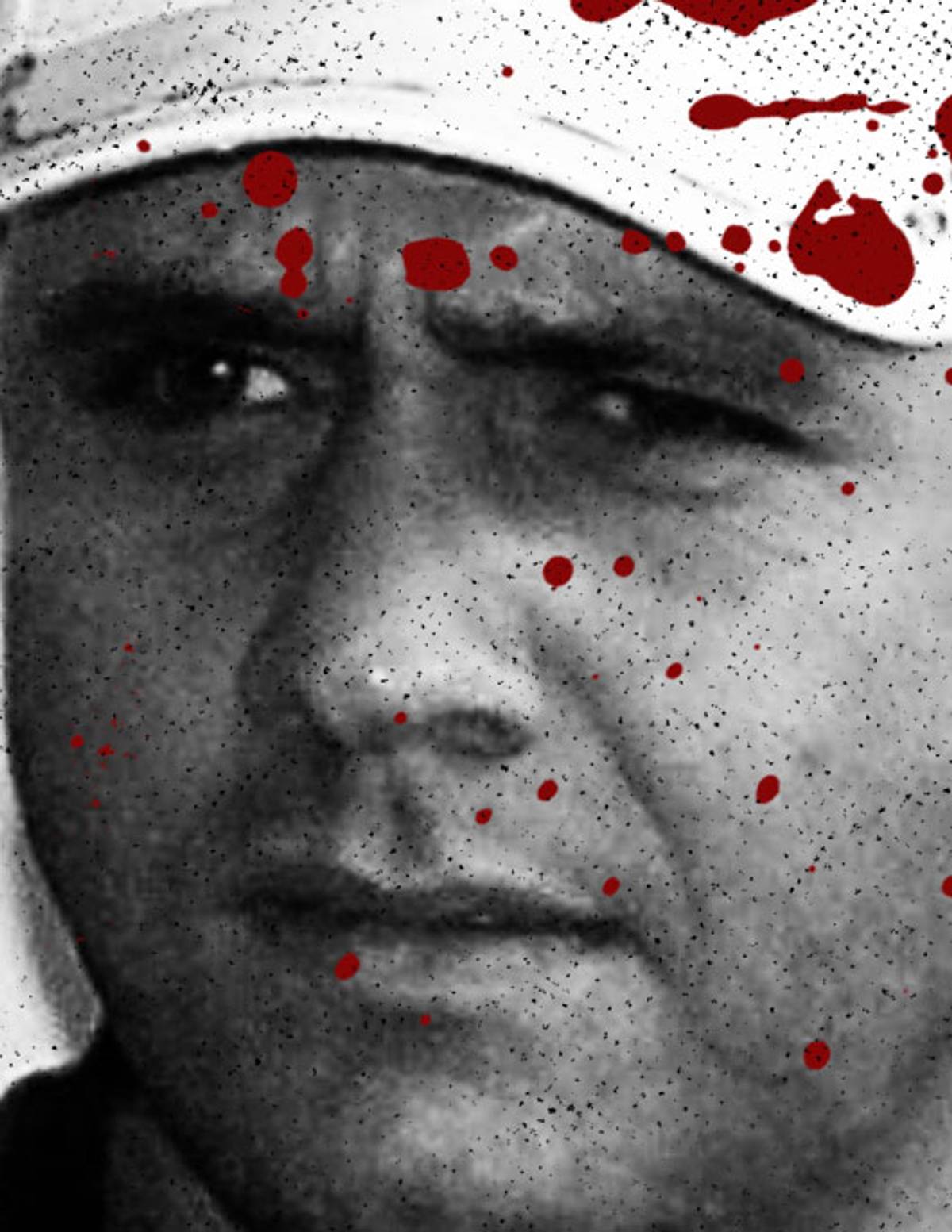
The Mosli Organization
The boss: Yossi Mosli
Home turf: South Tel Aviv
The Moslis started out as greengrocers in southern Tel Aviv and are known to the police as Israel’s gambling kings, running one of the country’s wealthiest crime organizations. The paterfamilias, Nissim, set up a network of illegal casinos in southern Tel Aviv. His sons, Yossi, Eli, and Shai, grew the family business, turning it into an international crime organization that also ran legitimate businesses like a vegetable distribution operation.
For years, the brothers were considered members of the Abergil organization, but after Yitzhak Abergil was extradited, the Moslis “rebelled” and started their own organization, recruiting many of Abergil’s former foot soldiers. The result was a war that cost many lives in central Israel.
Yossi Mosli is considered the organization’s CEO, while Eli is believed to be the CFO—responsible for running fancy casinos across Europe—while Shai has been living in Johannesburg for many years.
In 2015, the police believed it had all the evidence it needed to bring down the Moslis, arresting the organization’s members and accusing them of assassinating a few of their former colleagues who had turned state witnesses. To the great embarrassment of the police, the case collapsed in the wake of bad intelligence work as well as the mysterious murder of one of the prosecution’s key witnesses, who was killed when his car exploded.
The Uda Organization
The boss: Koteir (Koko) Uda
Home turf: Jaljulia

Koteir “Koko” Uda, 34, of Jaljulia is considered a meteor in the world of Israeli organized crime, as well as the heir of Yehiya Hariri, who for many years headed the largest crime family in the Israeli Arab community, based in Taibeh.
An indictment against Uda and 20 of his men describes how the charismatic youth, who came up as a foot soldier in the Hariri organization, struck out on his own and built a murderous crime organization with a group of loyal young men he picked up from around his neighborhood. The indictment alleges that Uda is responsible for a series of murders and assassination attempts in central Israel, as well as for other violent acts, and for extortion. These allegations came about after the police successfully recruited one of Uda’s former henchmen to turn state’s witness.
In addition to drug dealing and loan sharking, the police suspects that the organization, run out of a fortified compound in Jaljulia, is a third-party contractor hired by other crime organizations to execute assassinations on demand. The indictment also alleges that Uda traveled to South Africa himself to practice with a sniper rifle in preparation for one of the assassinations he was planning.
If you’re looking for a silver lining in this story, it’s that Uda is considered the embodiment of Jewish-Arab coexistence. His romantic partner in recent years is a Jewish woman, and he is a close personal friend of several Jewish crime bosses, including Eytan Haya and the Moslis.
The Department of Corrections believes that Uda was the one who ordered his men to shoot up two prisons recently in retaliation for being refused to attend the funeral of his older brother, who died of cardiac arrest.
The Shirazi Organization
The boss: Rico Shirazi
Home turf: Netanya
Aryeh “Rico” Shirazi is considered one of the more colorful criminals in Israel. He is fond of giving interviews and joking around with journalists whenever he’s arraigned, but underneath the smiles, the parties, and the models who always surround him is a murderous reputation.
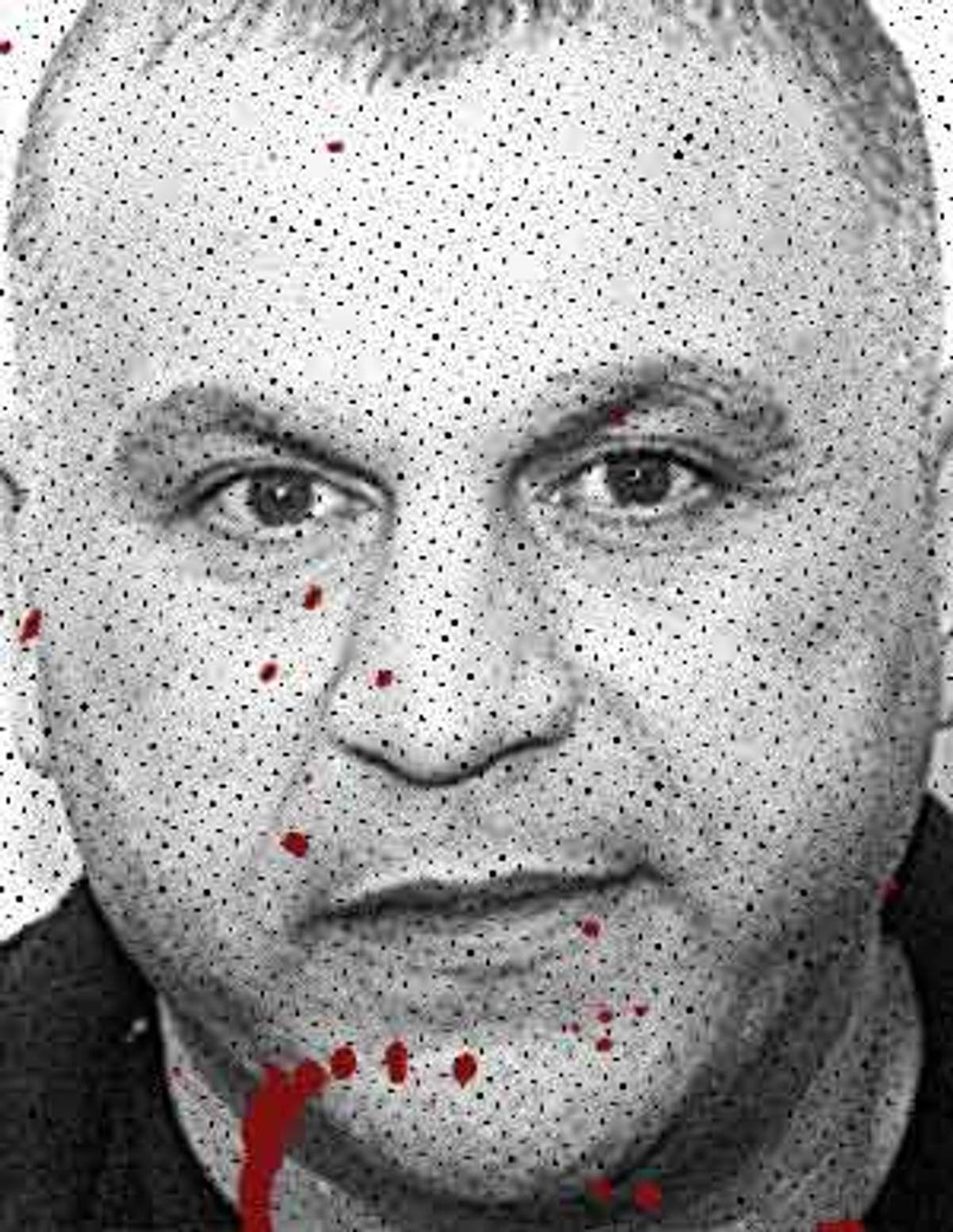
He grew up in Netanya, where he played soccer for Maccabi, where his brother was a star. A knee injury led him to give up his dreams of playing professionally and take up gambling and loan sharking. At the time, Netanya was under the thumb of the Aboutboul family, led by Felix “The Godfather” Aboutboul, who was one of the heads of Israeli organized crime until he was murdered outside his casino in Prague. After Aboutboul was killed, Shirazi set up his own organization, terrorizing Netanya and the Sharon area.
His son, Shai Shirazi, made headlines at a young age after he received a BMW sports car from his father, took it for a joy ride, and got into an accident that killed two of his friends and sent Shirazi to prison for two years. Shai Shirazi soon made headlines again when his name was tied to a shooting attack on a Tel Aviv club that killed a bouncer as well as a vendor at a nearby bodega. The police suspect that the bouncer refused to let the younger Shirazi and his friends into the club.
In 2015, Rico Shirazi was sentenced to eight years in prison for major tax fraud, which included producing fictitious invoices for NIS 25 million, or more than US$6 million. A year later, with the elder Shirazi in prison, his son, Shai, was murdered by an assassin as he was driving around northern Tel Aviv. Rico wasn’t permitted to attend his boy’s funeral.
Two years later, as part of Case Number 512, Rico Shirazi was convicted of killing one of his rivals in Germany, and was sentenced to an additional nine years behind bars. Last June, the police refused to permit him a furlough so he could attend his daughter’s wedding, arguing that he continued to grow his empire from prison. The police also believe that he will not let his son’s murder go unavenged.
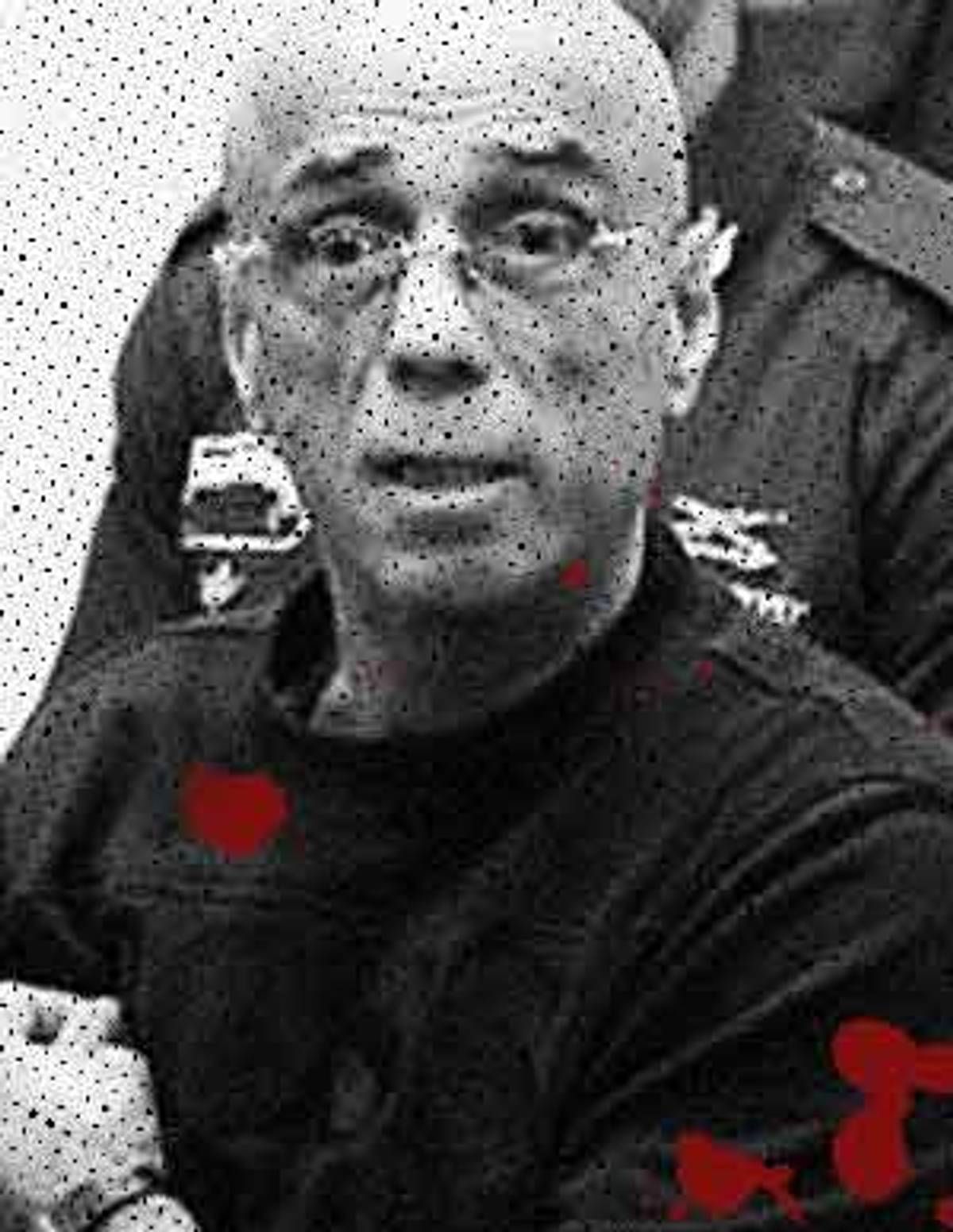
The Haya Organization
The boss: Eytan Haya
Home turf: Tel Aviv
Eytan Haya, 65, grew up in Ramat Gan, and was convicted of his first murder at 18. In the 1980s, he was believed to be one of the heads of the Israeli mob in New York, specializing in dealing drugs. After spending 15 years in a U.S. federal prison, he returned to Israel in 2003 and started a ruthless crime organization in his homeland.
Some of the people who double-crossed him and turned federal witnesses were murdered or narrowly escaped an assassination attempt. The police believe that Haya has neither forgiven nor forgotten. He lives in luxury high-rises, serves as a borer, and has been involved in extortion and loan sharking. He’s considered particularly violent, and is believed to keep in his apartment two vicious attack dogs, which he uses to intimidate those who owe him money. His son, Eran Haya, has served an 8-year sentence for murdering a former Israeli police officer in Cancun, Mexico, and is considered close to Amir Mulner and the Moslis. The police believe that he is the one running Eytan’s affairs while the father is behind bars.
It looks like Eytan is likely to stay behind bars for a long time: In 2016, he was sentenced to 20 years in prison for violence, extortion, and money laundering. He appealed, and his sentence was commuted to 12 years.
The Jarushi Organization
The boss: Milad Jarushi
Home turf: Ramla
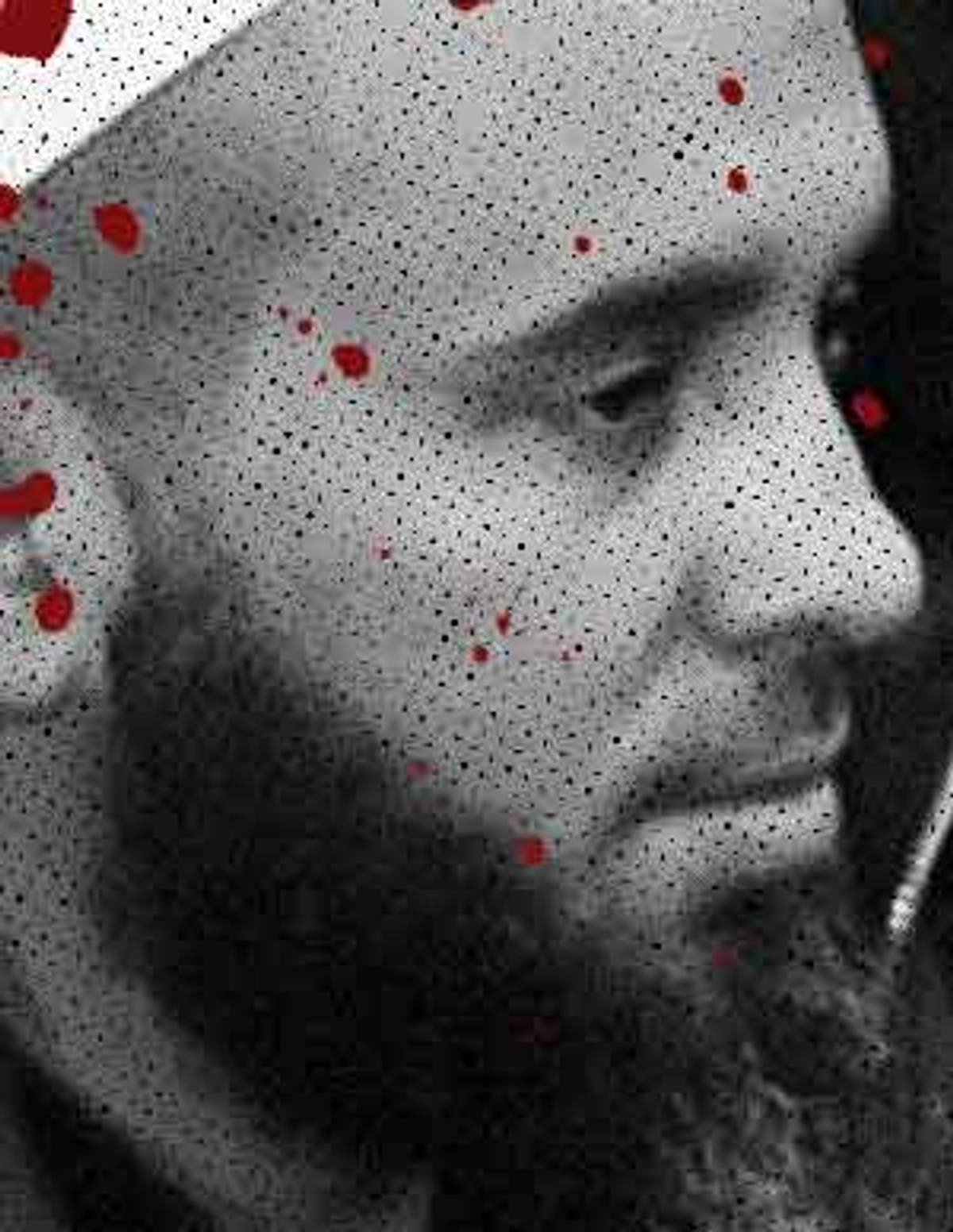
The Arab Jarushi family’s organization is one of the oldest and most stable in Israel, even though its been under police surveillance for many years. Ramadan Milad Jarushi, in his 70s, is believed to be the organization’s leader.
According to estimates, the Jarushis make millions of shekels a year from extortion, dealing drugs, arms trafficking, adjudicating conflicts, and illegal gambling. One of the organization’s methods of operation involve dealing drugs via “ATMs,” with the transaction taking place through a hole in the wall, making it impossible for the buyer to see the seller, who is concealed within a fortified space. The Jarushis are allied with several other organizations across Israel, and are believed to be close to the Abergil organization.
In interviews with the press, several family members announced that they have abandoned their life of crime and now run legitimate businesses. Recently, one family member helped the police free a 7-year-old boy who was kidnapped by criminals as part of a feud between two Arab gangs.
Last year, a scandal erupted when it was reported that one member of the family, Hussam Jarushi, was arrested under suspicion that he covered the debts of David Bitan, a Likud Knesset member who was then serving as the head of the coalition. Bitan, a former high-level official in the Rishon Le’Tzion municipality, amassed millions of shekels in debts to shadowy figures in the gray market, and the police suspect that in return for covering his debts, Bitan helped the Jarushis win large contracts. Following the investigation, Bitan was forced to resign from his duty as the head of the coalition, leading many to ask if the heads of Israel’s crime organizations have extended their influence to the top echelons of Israeli politics.
***
Translated from the Hebrew by Liel Leibovitz.
Assaf Gur is a journalist and editor at Yedioth Ahronoth.